Types of Castors and Wheels: A Complete Guide
A castor is a component consisting of a wheel and a mount. Castors facilitate the mobility of carts, racks, dollies, and other equipment in different industrial environments. Different types of castors are available in various materials, wheel sizes, tread widths, weight ratings, and overall heights to accommodate different needs.
What are castor wheels?
A castor wheel is a relatively small, undriven wheel, designed to be affixed to the bottom of an object to facilitate mobility on hard surfaces. Castors wheels are commonly referred to as ‘castors.’
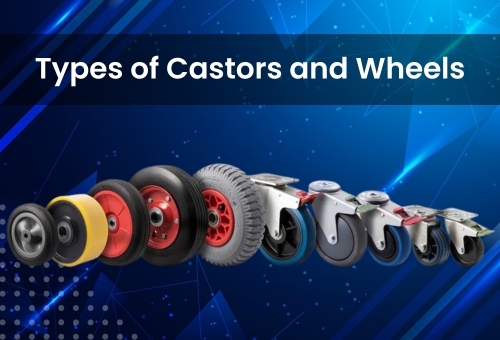
Castors: The Different Types
There are three fundamentally different types of castors – single wheel, double wheel, and complex wheel.
- Single wheel castors – Single wheel castors are designed with a single wheel and mount. They are suitable for light to medium-duty applications.
- Double-wheel castors – A double-wheel castor has two twin wheels positioned next to each other for increased stability. They are ideal for heavy-duty applications.
- Compound castors – Complex or compound castors are two-piece wheels with fixed concentric discs that spin around a single axis. They provide increased overall strength in load-bearing situations.
- While selecting the right castor for your application, several factors need to be considered. This includes –
- The weight of the castors
- The environment
- Exposure to chemicals or corrosive materials
- Temperature range
- Type of flooring or surface
- Aesthetics consideration
- Noise reduction
- Needs for brakes
- Requirement for certificates following CA Prop 65, NSF for food service, or other standards
Types of Castor Wheels
There are two real castor wheel types according to their mobility: rigid and swivel.
- Rigid castor – A rigid castor is also called a fixed castor that cannot roll in any other direction and is ideal for straight-line movement.
- Swivel castor – The raceway of a castor wheel swivel type allows the wheel to rotate. The raceway is the cylindrical section containing the track or ball-bearing tracks. There are two types of swivel castors: Conventional and Kingpinless.
- Conventional swivel castor – In conventional castor wheel swivel types, the raceway is held together by a kingpin, a bolt or a rivet. The kingpin is subjected to tremendous shock stress, caused by equipment running into barriers or huge weights being thrown upon it. Because of this, standard castor wheel swivel types frequently fail at the kingpin.
- Kingpinless castor wheel – A kingpin less castor is a castor wheel swivel type with a raceway not secured by a bolt or rivet. Because stress is distributed more uniformly, kingpin-less castors are often more durable than conventional swivel castor wheels.
They are ideal for motorised towing situations since they can better endure the shock stresses, such as uneven terrain, obstructions, rapid turning, and falls. However, the initial cost of kingpin-less castors is often more than regular castor wheel swivel types.
Types of Castor Swivels
Different combinations of rigid and swivel castor wheels can be used for various applications:
- Two Parallel Swivel Castors – Two parallel swivel castor wheels with fixed castors are the most typical arrangement for castors. This offers excellent cart turning and straight-line mobility.
- Single Swivel Castors – Castor wheels with single swivel are easily manoeuvrable in any direction, which is excellent for moving lighter loads in confined spaces but is challenging to manage. In this setup, swivel locks on two castors can facilitate moving in a straight line.
- Four Rigid Castors – The arrangement of four rigid castors in a diamond design might be cost-effective. Typically, with this layout, the centre pair of left and right side castors is significantly higher than the pair on the front and rear. This makes it easier to spin and pivot the cart when the load is positioned over the centre-fixed castors.
Where Are Castors Wheels Employed?
Castor wheels are commonly used in commercial, industrial, and office environments. They are employed to make a heavy or bulky piece of furniture or machinery more mobile. Attaching small, inconspicuous wheels to the bottom of any significant or sturdy object can make it more mobile and can be moved with ease.
The kind and style of castor wheel types required for attachment to a particular vehicle will mostly depend on two factors:
- Castor’s weight capacity (load-bearing)
- Surface class (for movement)
If you are using swivel castor wheel types, larger wheels can affect the vehicle’s height above the floor and the space required for rotation. Aesthetics and functionality are important considerations, especially when using furniture castors that may be visible or intrusive.
These furniture castors are used in various commercial and office applications. Whereas specialised and heavy-duty castors are used in industrial, manufacturing, and service environments, you may find a wide variety of specialised and heavy-duty castors. Some examples of notable uses for castor wheels include:
- Office and commercial furnishings
- Aircraft construction
- Car manufacturing plants
- Platform vehicles
- Workbenches
- Moving and lifting equipment
- Hospital beds, stretchers, and medical castors are examples of medical equipment.
- Installations and machines at a factory
- Applications for storage
- Luggage racks
- Shopping carts and fruit and vegetable handling equipment
How Do Castors Function?
Castor wheels are typically linked to the underneath of the vehicle by a permanent top plate. To connect the castor wheel to the object, you can use screws or bolts put through pre-drilled holes in the top plate. Other common connection techniques include bolt holes and threaded stem wheels.
Bolt hole castors are typically attached using either a threaded bolt or an extra tubular adapter piece (the latter is widespread for basic, low-cost office furniture). Threaded stem castors often comprise the stem component; which you will need to screw directly into the vehicle’s frame when mounting wheels.
Again, the optimal mounting method will depend on the weight each castor is required to support. Other criteria that may impact your choice of mounting mechanism include:
- The availability of viable mount places
- The size of the wheels
- The turn/swivel radius of the castors
- The frequency with which you anticipate moving the object
Large and heavy pieces of furniture or equipment require at least four castors at each corner to equip the underside, while smaller objects may require fewer castors. Several other categories and characteristics of castor wheels are optimised for specific purposes, workspaces, or surroundings, including
- Rotating or fixed castors
- Extra-heavy or heavy-duty castors wheels
- Wheels with brakes
- Tiny or concealed castors wheels
- Castors with tyres or other protective or safety attributes
The wheel hubs can also have different designs, such as roller bearings, ball bearings, and friction bearings.Or a simple smooth bore, depending on the weight and purpose. Smoothbores lack bearings and are appropriate for lesser weights.
Types of Castor Wheels
There are several types of castor wheels available, each designed for a specific purpose. Let’s examine some of the most common varieties of accessible castors wheels in further detail.
- Heavy-duty Castor Wheels – Heavy-duty castor wheels are capable of supporting heavier loads than other types of castor wheels. Three distinct castor wheel strength ratings are commonly used, indicating the load-bearing capability, durability, and manoeuvrability required for the vehicle to which they are attached.
- Wheels with Swivel and Fixed Castors – Swivel castor wheels swivel types let the wheels revolve on a bearing, allowing the equipment to move in any direction across the floor (as in shopping trolley wheels). Fixed castors only let the object move in a straight/linear direction.
- Castor Wheels with Braking Mechanisms – Braked castor wheels include an inbuilt pedal or tab mechanism that may lock the wheels in position, securing the object being moved. These types of trolley wheels are especially beneficial if you occasionally require the vehicle to remain still without the possibility of undesired movement, especially on uneven surfaces.
- Miniature Castor Wheels – Typically, the size of a castor’s wheel will affect its maximum stability and load-bearing capability. Smaller wheels are often less expensive and constructed of less durable materials (although there are exceptions in specific industrial designs).
The majority of compact castors are designed for professional or commercial use. Because they are inconspicuous, they are commonly fitted on indoor furniture. The rule of thumb when selecting miniature castor wheels is to choose hard wheels for soft flooring and vice versa. Small hard castors are typically constructed of nylon or polyurethane, but small smooth wheels are frequently made of rubber or have a rubber “tyre.”
Weight Capacity of Castor Wheels
Typically, light-duty types of castor wheels can support up to 75kg. Medium-duty y types of castor wheels are typically suited for weighing 76kg and 140kg. Heavy-duty and extra-heavy-duty types of castor wheels can sustain weights over 141 kilogrammes, but check the manufacturer’s instructions before installing.
Depending on the surfaces on which you want to use heavy-duty castor wheels, you may also purchase pneumatic or puncture-resistant types of castor wheels. This is a standard requirement for several industrial and outdoor applications.
Why Choose Wicke?
Wicke is one of the world’s largest producers of industrial wheels, tyres, axles, swivel castors, and fixed castors. For our OEM customers, we produce load wheels, drive wheels, track rollers, support wheels, lift truck rollers, support steering rollers, steel band tyres, scaffolding steering rollers, shopping cart rollers, rolling container rollers, spring-loaded steering rollers, customised high-end heavy-duty rollers.
Our products are designed to withstand heavy loads and are built to last. The company’s wheels and castors provide superior traction, stability, and manoeuvrability, making them ideal for use in various industries. Our high-quality wheels and castors are utilised extensively in industrial vehicle equipment, robotic vehicles, intralogistics equipment, the construction sector, distribution logistics, conveyor systems, and heavy-duty trailers.
Our commitment to quality, innovation, and customer service has made us a trusted partner for customers worldwide. Call us on (02) 8764 3724 or email us at sales@wickeau.com.au to learn more about our products and services.

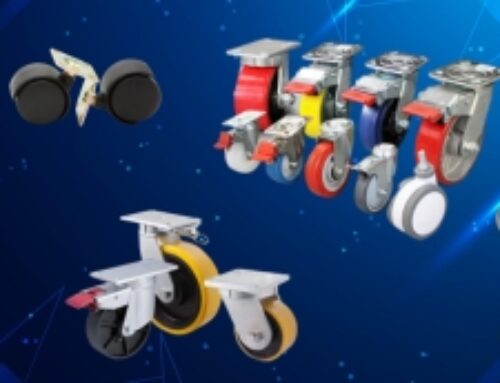
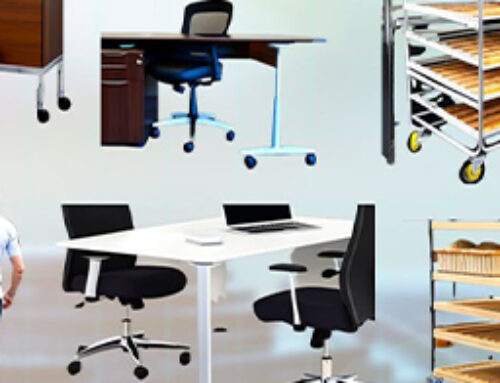
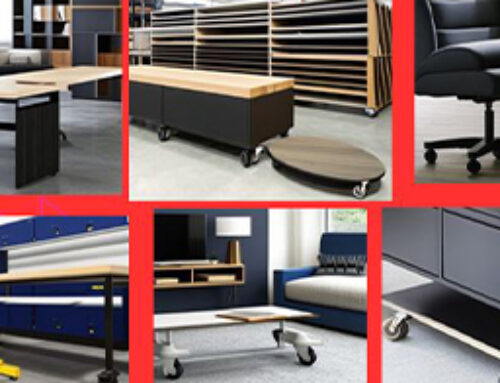
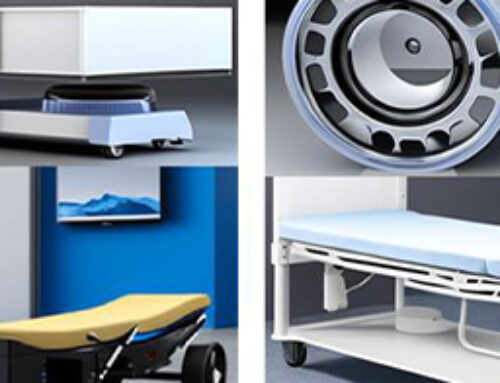
Leave A Comment